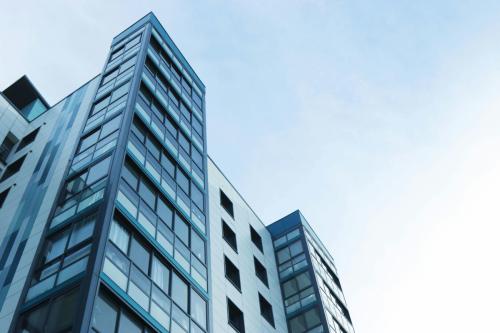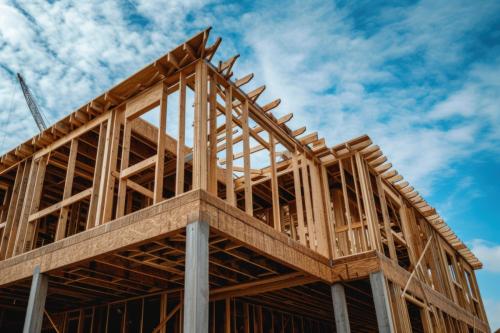What Is the Effect of Noise on Health?
- Posted
- Author
- Mark Page
Noise pollution is more than just an annoyance; it's an invisible intruder that can affect your well-being. From the hum of urban traffic to the industrial machinery in the distance, Sound Solution Consultants understands how noise can impact your health and quality of life.
In this blog post, we'll uncover the hidden ways noise affects your health, explore common sources, and offer practical strategies to reduce its impact.
What Is Noise Pollution?
Noise pollution is the presence of unwanted or disruptive sounds in our environment that negatively affect our health and well-being. Unlike other types of pollution, it’s often an invisible intruder, but its effects can be deeply felt.
Sound can be measured in decibels, and prolonged exposure to levels above 70 dB can impact your hearing health. However, noise pollution isn't just about volume; it's also about the type, frequency, and timing of the sounds.
Common Sources of Noise
Noise pollution comes from a variety of sources that can affect our daily lives, often more than we realise.
Traffic
The constant hum of vehicles on busy streets or motorways, honking horns, and emergency sirens all contribute to urban noise pollution.
Construction
Machinery like jackhammers, drills, and bulldozers produce high-decibel sounds that can be hazardous to workers' health.
Industrial Activities
Factories and manufacturing plants often generate continuous mechanical noise, especially in areas where industrial zones are near residential neighbourhoods.
Household Appliances
Appliances such as washing machines, blenders, and hoovers create their own ambient noise, particularly if you’re in a tightly enclosed space like an apartment.
Recreational Activities
Music concerts, sports events, and parties can be sources of occasional, high-volume noise pollution that may disturb your neighbourhood.
Air Traffic
Aircraft flying over residential areas create bursts of noise that can be jarring and interfere with your communication and rest.
Types of Noise Exposure
There are various forms of noise pollution, each with unique impacts on our health and well-being. By understanding the different types, we can better identify and address their challenges.
Impulse Noise
Short bursts of very loud noise, like gunshots or explosions, are types of impulse noise. They’re usually intense and can lead to immediate hearing damage or tinnitus.
Acute Exposure
Acute exposure occurs when you’re subjected to sudden, high-decibel noise over a short period, such as during a fireworks display, concert, or an emergency siren passing by.
Low-Frequency Noise
Often described as a hum, drone, or rumble, low-frequency noise is difficult because walls or earplugs don’t easily absorb it.
Occupational Noise
If you’re a worker in construction, manufacturing, or aviation, then you’ll be exposed to hazardous noise levels daily.
Chronic Exposure
Continuous or repeated exposure to moderate noise levels is common if you’re living or working in an urban setting. Traffic noise, construction sites, and machinery produce a steady sound environment.
The Effects of Noise on Physical Health
Noise pollution has far-reaching effects on our physical health, often more severe than we might initially suspect. While many people associate loud noise primarily with hearing loss, research has shown a broader range of health concerns linked to continuous exposure.
Hearing Loss
Exposure to loud noise, whether sudden or prolonged, can have a significant impact on your hearing health. When subjected to sounds above 85 decibels, like those found in a construction site or at a concert, the delicate hair cells within the cochlea of your inner ear can be damaged or destroyed. These cells translate sound vibrations into electrical signals for your brain. While this damage might first be noticeable as difficulty hearing high-pitched sounds, noise pollution can cause a gradual decline in your ability to make out speech, especially in noisy environments.
Heart Problems
Chronic exposure to noise pollution, particularly from urban traffic, aircraft, or industrial machinery, can keep your body’s stress response constantly activated. This stress response elevates your hormone levels like cortisol and adrenaline, causing your blood vessels to constrict and your blood pressure to rise. By putting persistent stress on your cardiovascular system, you’re subject to hypertension and an increased risk of atherosclerosis, leading to heart disease or stroke.
Sleep Disruption
Quality sleep is vital for our health, but noise pollution is a frequent disruptor of this essential time. Sounds like honking horns, construction machinery, and aircraft engines can prevent your brain from entering deep sleep stages, resulting in frequent awakenings or shallow sleep. This disruption can cause fatigue, irritability, and impaired cognitive function during the day. Over time, it also affects your metabolism, making you more susceptible to conditions like obesity and diabetes.
Tinnitus
Tinnitus is the persistent ringing, buzzing, or whistling sounds in your ears. This often correlates with damage to your hair cells in the inner ear. This condition can start as a temporary issue after short bursts of loud noise, like concerts, but with prolonged exposure like in industrial settings, it may become chronic. The constant nature of tinnitus can significantly impact your sleep, concentration, and overall quality of life.
Weakened Immune System
When you’re constantly exposed to noise pollution, your body is in a state of heightened stress, activating the release of hormones like cortisol and adrenaline. This persistent stress response suppresses your immune function, making you more susceptible to infections and slowing down your recovery from illnesses.
Musculoskeletal Issues
Noise pollution is a source of stress that can unconsciously cause your body to tense up, leading to musculoskeletal issues like neck pain, backaches, and muscle stiffness. Over time, this stress may also cause tension headaches or migraines, further impacting your quality of life. If left untreated, chronic tension can aggravate any existing musculoskeletal problems you might have or lead to the development of new ones.
The Effects of Noise on Mental Health
Noise pollution doesn't just affect our physical health; its impact on mental health can be equally profound. The constant exposure to disruptive sounds in our environments—whether it’s from urban traffic, industrial activities, or loud neighbours—creates a significant source of stress.
Stress and Anxiety
Continuous or unpredictable noise pollution triggers your body's stress response, releasing hormones like cortisol and adrenaline. Living near busy traffic, industrial machinery, or noisy neighbours can create a constant state of alertness. This heightened stress often manifests as nervousness, irritability, and an inability to relax. Over time, prolonged exposure to noise can make this anxiety more severe, making you feel persistently tense and uneasy, even in quieter settings.
Reduced Focus
Persistent noise disrupts your concentration and impairs your cognitive function, making it harder for you to focus, solve problems, or retain information. In environments where noise is constant, your brain struggles to distinguish between relevant sounds and background disturbances. This cognitive overload can result in difficulty with decision-making, multitasking, and learning new skills.
Mood Disorders
Research shows a strong link between chronic noise exposure and the risk of developing mood disorders such as depression. Constant noise disturbances, particularly in urban environments, can leave you feeling frustrated and helpless, as you struggle to avoid the intrusive sounds around you. This sense of a lack of control, combined with the physiological impact of chronic stress, can cause feelings of sadness, hopelessness, and a declining ability to enjoy everyday activities.
Behavioural Changes
Behavioural changes are a common response to noise pollution, as the ongoing stress can make you more irritable or prone to anger. Social withdrawal often follows, as trying to avoid those noisy environments increases your risk of isolation and strained relationships. In urban areas especially, where noise is a daily challenge, this tendency to isolate yourself can increase those feelings of loneliness, contributing to further behavioural changes that impact your social interaction and overall well-being.
How to Reduce the Effect of Noise on Health
Whether it’s external noise pollution seeping into your living space or internal noise disrupting your productivity at work, minimising the impact of noise improves your health and well-being.
Acoustic Testing and Surveys
Acoustic consultancies offer comprehensive noise surveys and testing to measure your existing noise levels, identify problem areas, and evaluate your building materials. For instance, a consultancy can conduct a detailed on-site noise survey in an open-plan office to identify areas where speech privacy is compromised or where HVAC systems create distracting noise. This ensures that soundproofing recommendations are both accurate and tailored to the specific acoustic profile of your environment.
Soundproofing Solutions
Acoustic consultancies can conduct a detailed assessment of your space to identify specific areas where noise seeps in. Based on this analysis, experts can recommend and install appropriate soundproofing materials. In a high-rise residential building near a busy street, they might recommend installing double- or triple-glazed windows with acoustic seals, and specialised door sweeps to minimise noise penetration. Additionally, in commercial or institutional buildings, ceiling panels and wall-mounted acoustic tiles can absorb sound effectively, reducing reverberation in large spaces like conference rooms or lecture halls.
White Noise Solutions
Acoustic consultancies can design sound masking solutions designed for your space's acoustic needs. In an open-plan office where conversations and phone calls create distractions, a properly calibrated sound masking system can provide ambient background noise that makes speech less intelligible, improving productivity. By analysing the noise spectrum in your environment, experts can recommend and install sound masking systems that effectively neutralise disruptive background sounds while maintaining a comfortable ambience.
Noise-Cancelling Technologies
Noise-cancelling technologies go beyond personal headphones. For manufacturing facilities or public spaces with constant machinery hum or traffic noise, acoustic experts can recommend active noise-cancelling systems that detect and counteract unwanted sounds. For example, installing noise-cancelling devices near HVAC units or on machinery can drastically reduce low-frequency droning that seeps into office spaces, making the environment more comfortable.
Customised Noise Barriers
Where noise sources can’t be moved or altered, acoustic consultancies can design customised barriers. For instance, around an industrial site near a residential area, a consultancy might build modular noise barriers made of sound-absorbing panels. These barriers can be adjusted in height or placed strategically to deflect noise away from sensitive areas. In office buildings, partitions with high noise reduction coefficients can create private, quiet spaces even within busy open-plan layouts.
Manage the Effect of Noise on Health with Sound Solution Consultants
Managing the effect of noise on health is essential for maintaining quality of life. By understanding the impact of noise pollution on your health and implementing strategic measures, you can create a quieter, healthier environment.
Sound Solution Consultants’ acoustic assessments pinpoint specific sources of noise in residential, commercial, and industrial settings. With this information, we tailor soundproofing strategies including everything from acoustic windows and doors to advanced sound masking systems.
Whether you're seeking support to manage the effects of noise on your health through assessment, testing, consultancy, or customised remediation, we encourage you to reach out to us.


